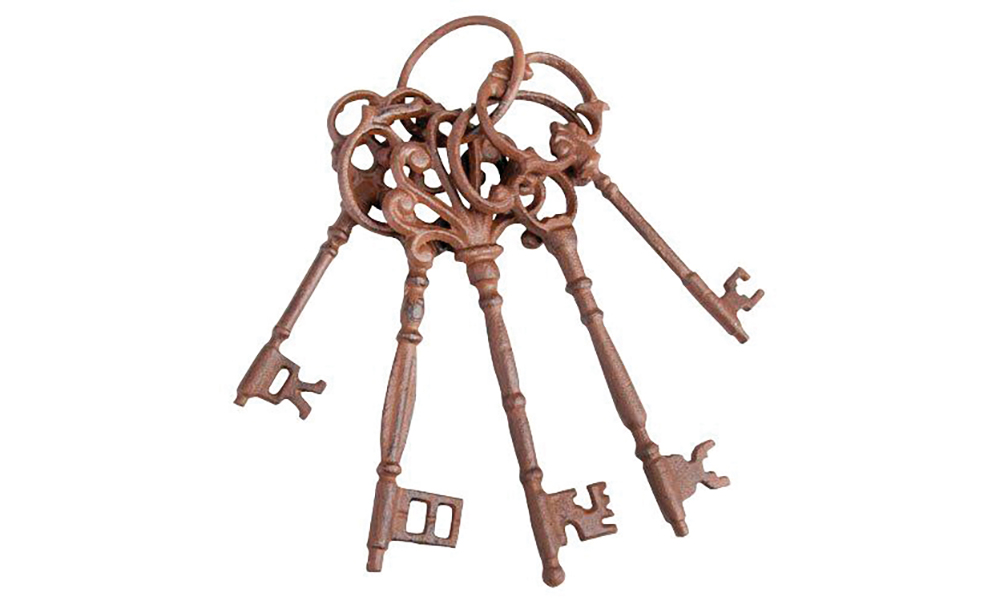
On May 13, 1948, one day before the termination of the British mandate of Palestine, as the last British column was leaving the Old City, it stopped and veered up an alleyway to No. 3 Rechov Ohr Hachaim. Inside, sat Rabbi Mordechai Weingarten, senior resident of the Jewish Quarter, surrounded by his sefarim, engrossed in his studies. His family had lived in that courtyard for five generations. His wife’s family arrived in the city from Lithuania in 1740 and were the first Ashkenazi Jews to settle in the Jewish Quarter. Weingarten’s own family moved to the Old City in 1813. When Rabbi Weingarten heard a knock at the door, he rose, and seeing that it was a British officer, he put on his vest, jacket and hat and stepped out into the courtyard. I will quote to you (mostly) from the account in the classic book, “O Jerusalem” (p XVI):
There before Weingarten stood a middle-aged British major wearing the yellow and red insignia of the Suffolk Regiment. From his right hand, dangled a bar of rusted iron almost a foot long. With a solemn gesture, he offered it to the elderly rabbi. It was a key, the key to the Zion Gate, one of the seven gates to the Old City of Jerusalem. “From the year 70 AD until today,” he said, “a key to the gates of Jerusalem has never been in Jewish hands. This is the first time in eighteen centuries that your people have been so privileged.” Weingarten extended a trembling hand to accept the key. The Midrash (Avos d’Rabbi Nathan 4:5) tells that on the night that the Roman Emperor Titus destroyed the Temple, its despairing priests had climbed to its roof and thrown the keys of Jerusalem to the heavens, crying out, “God, these keys that you gave us, we did not guard them well. Please take back your keys.” A hand came from the heavens and took the keys. And now, eighteen centuries later, God had sent this agent to give us back the keys.
This story is exceptionally moving and profoundly sobering, as the keys to Yerushalayim were wrested immediately from our hands in the War of Independence. It reminds us that the holiness of Yerushalayim, that treasure that was returned to us 57 years ago, is a gift that we must not only cherish but safeguard.
Every Jew is a guard charged with protecting something of immense value. The Jewish people as a whole provided the conscripts for the army that would physically defend us from our mortal enemies, from external threats, while the tribe of Levi were charged with establishing our internal standard and strength, protecting the sanctity of the mikdash, God’s home in our midst (Bamidbar 1:48-53). This is a classic expression of the duality of responsibility that drives klal Yisrael as we seek to safeguard our material well being while building our religious heritage and mission.
It is striking that the very first command we were given at Sinai (Shemos 19:12), before God could speak to us and teach us the Torah, was that we respect and safeguard that which is holy. “Set a boundary for the people around the mountain, tell them not to ascend to it nor even touch its edge.” The unique beauty of that moment was that God entrusted us with that task. We could be expected to be sensitive to holiness. No guard stood at Har Sinai; God’s word was enough.
This was a real change. Since the day that Adam had sinned and been banished from the Garden of Eden, the path to access that holy space was blocked and guarded by angels with revolving swords (Bereishis 3:24). While we had been created to live in God’s presence in paradise, we could no longer be entrusted with it. But at Sinai, a time that our Sages considered a return to paradise and God’s presence, the pathway was reopened, and we were trusted to self-impose the appropriate respect for that which is holy.
That change has been reflected in our contemporary experience. For centuries, the roads to Zion and Yerushalayim were blocked by others holding “revolving swords.” In our time, those roadblocks have been removed and we once again hold the keys to our land and to the holy and precious city of Yerushalayim. The access we have been granted signals that Hashem is again entrusting us to be the guardians of that which is most holy, that He has handed us back the keys and is relying on us to safeguard all that is most precious.
A truly sacred trust.
Rabbi Moshe Hauer is executive vice president of the Orthodox Union (OU), the nation’s largest Orthodox Jewish umbrella organization.










